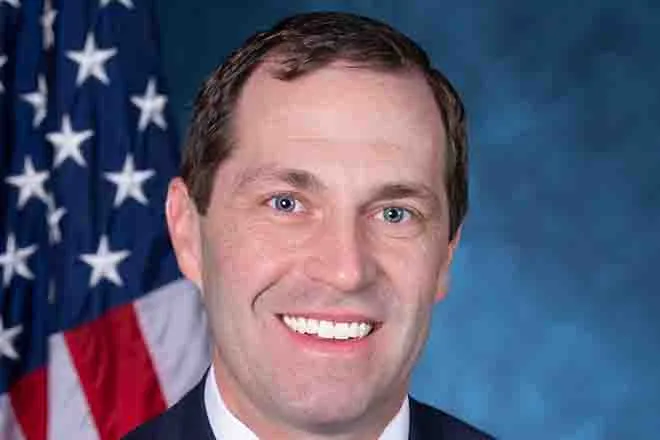
Daily Audio Newscast Afternoon Update - August 18, 2025
© INDU BACHKHETI - iStock-1336427297
News from around the nation.
Trump tells Zelensky to give up Crimea and never join NATO ahead of White House talks; '100 foot' waves are reportedly heading for the U.S; Medicaid could strengthen support for AL youth in justice system; University of Maine researcher ties vaccine skepticism to previous medical harm; Artists bring 'life to death' at Midwest's first cemetery art residency.
Transcript
The Public News Service Monday afternoon update.
I'm Mike Clifford.
Ukrainian President Zelensky has arrived in Washington, D.C. where he will be joined by key European leaders when he meets with President Donald Trump this afternoon.
Trump now says Zelensky must agree to some of Russia's conditions, including that Ukraine cede Crimea and agree never to join NATO for the war to end.
That from CNN.
They reported last week's summit with Trump.
President Putin agreed to allow security guarantees for Ukraine and made concessions on land swaps as part of a potential peace deal.
Russia has yet to mention such agreements.
And from Yahoo News, Hurricane Erin is headed for the United States, and so too could be some massive waves reaching more than 100 feet in height.
The major storm, Cat 3, is weakening as it approaches the US.
Still, it could have serious impact on much of the East Coast.
Meantime, juvenile justice experts say rethinking healthcare for incarcerated youth could help prevent young people in Alabama from entering the system in the first place.
Joe Ribsom with the Annie E. Casey Foundation says when healthcare needs go unmet, youth can be pushed deeper into the system instead of getting the care they need to move forward.
Many youth involved with the justice system have significant needs, physical health needs, dental needs, mental health needs, trauma, and more, all of which can be addressed by a well-designed and well-integrated healthcare system.
Ripsom says Medicaid can play a key role in making sure youth get the care that puts their needs first, limits their time in the system, and supports them as they rejoin their communities.
Shantia Hudson reporting.
And research shows the growing anti-vaccine movement among parents is often tied to people's traumatic medical experiences.
Assistant Professor of Anthropology at the University of Maine, Joanna Richland says, while vaccine skeptics are easy to demonize, Many parents believe they're protecting their kids from similar fates.
The hope is that when we actually take the time to talk to people and hear their lived experiences that we can start to understand the phenomenon.
Some women connect their distrust of the healthcare system to medical harm they endured in childhood or feeling coerced by doctors during childbirth.
Next, you go to cemeteries to grieve, to remember, or maybe for a lunch break walk.
But at one Minnesota cemetery, you could add another reflective activity to that, art.
In Minneapolis, Lakewood Cemetery has launched its first artist in residence program.
Four local artists host events and put together different types of creative work throughout the year at this 250 acre site.
Lakewood's Amanda Luke says it makes sense to combine art with grieving.
I mean, you could go to any gallery or museum and certainly do something that's centered around those themes, but to have it in a place like a cemetery where you're really, really enmeshed conversation and that train of thought, it really shows that there's a need for that.
This story with original reporting by Amy Falege for Arts Midwest.
This is Public News Service.
Next to the Gulf Coast where Biloxi's century-old claim as the seafood capital of the world is under threat as a report finds 82 percent of tested coast restaurants falsely labeled imported shrimp as local Gulf catches.
The study by Seed Consulting, which genetically sampled 44 restaurants, estimates such fraud costs US shrimpers nearly a billion dollars annually.
Dave Williams is the report's lead researcher.
He says the findings expose a crisis for the region's identity.
It is a real slap in the face of our industry that the actual city that is known as the shrimp capital has so many inauthentic products served.
It's just wrong.
The 2024 investigation identified only eight establishments, including Biloxi's White Pillars and Ocean Springs Vestige that accurately source Gulf shrimp.
Mississippi passed seafood labeling laws in 2024, requiring restaurants to clearly state if shrimp is Gulf caught or imported with fines for violations, but enforcement remains a challenge.
Based on original reporting by Boyce Uphold For the Food and Environment Reporting Network.
I'm Trammell Gomes.
Meantime, Illinois students headed back to school will be scored differently on standardized tests since the Illinois State Board of Education has changed what qualifies a student to be deemed proficient.
What are known as the cut scores for math and English language arts on the Illinois Assessment of Readiness will be lower, while cut scores for the Illinois Science Assessment will be higher.
Jennifer Kermes, who oversaw policy and research at Advance Illinois at the time of the interview, says the state's standards are among the highest in the nation.
She adds educators and administrators felt they weren't painting an accurate picture, particularly at the high school level.
What school districts were finding is that students who were deemed not yet proficient, those students were actually demonstrating readiness for college and career in lots of other ways.
Judith Ruiz Branch reporting.
And Massachusetts lawmakers have released what they say is a roadmap to greatly reduce poverty in the state by the year 2035.
The recommendations are based on testimony from community groups that work with low-income families as well as people struggling to get by in one of the most expensive states in the nation.
Democratic State Senator Sal DiDomenico says the goal is to put cash in people's pockets and create opportunities for long-term economic growth.
We know there are many steps to do this.
This is a very serious issue and we're gonna take this approach where we're gonna keep building over time.
He says it's unacceptable that roughly 70,000 Massachusetts children live in what's considered deep poverty or 50 percent below the federal poverty level.
I'm Catherine Carley.
This is Mike Clifford for Public News Service.
Member and listener supported.
Find our trust indicators at publicnewsservice.org

















